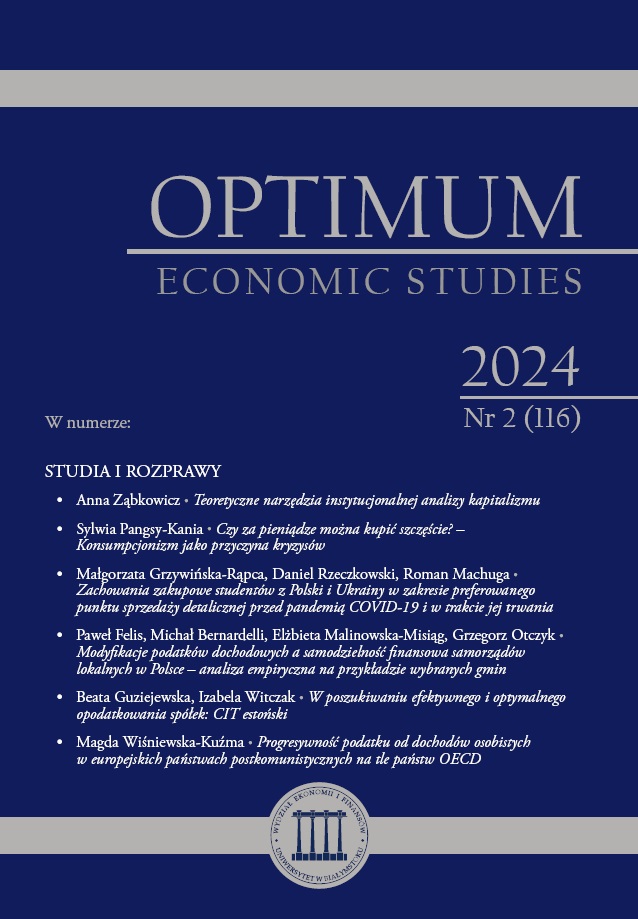PROGRESYWNOŚĆ PODATKU OD DOCHODÓW OSOBISTYCH W EUROPEJSKICH PAŃSTWACH POSTKOMUNISTYCZNYCH NA TLE PAŃSTW OECD
PROGRESSIVE PERSONAL INCOME TAXES IN POST-COMMUNIST EUROPEAN COUNTRIES COMPARED TO OECD COUNTRIES
Author(s): Magda Wiśniewska-KuźmaSubject(s): Politics / Political Sciences, Economy, Socio-Economic Research, Geopolitics
Published by: Wydawnictwo Uniwersytetu w Białymstoku
Keywords: measurement of local progression; personal income tax; tax policy; post-communist countries
Summary/Abstract: Purpose – The aim of the article is to assess progressive personal income taxes in the context of implementation of the fiscal function of taxes in European post-communist countries compared to other OECD countries. Research method – Descriptive and comparative analysis, as well as the data agglomeration within hierarchical clustering analysis. Results – In most of the examined countries, there is regressive progression in personal income tax. Six clusters were distinguished through clustering OECD countries based on variables describing tax progressivity and the scope of the taxes’ fiscal function. European post-communist countries, along with Turkey, formed a cluster characterized by the strongest regressive progression, low average PIT rates, and low fiscal importance of PIT. Originality/value/implications/recommendations – A proprietary indicator was developed to measure progression in personal income tax, based on both the degree of progression (the ratio of average PIT rates for income at 67% and 167% of the average wage in the economy) and the steepness of progression, expressed by the ratio of PIT rate increases in both income groups: 67% and 167% of the average wage in the economy.
Journal: Optimum. Economic Studies
- Issue Year: 116/2024
- Issue No: 2
- Page Range: 115-140
- Page Count: 26
- Language: Polish

